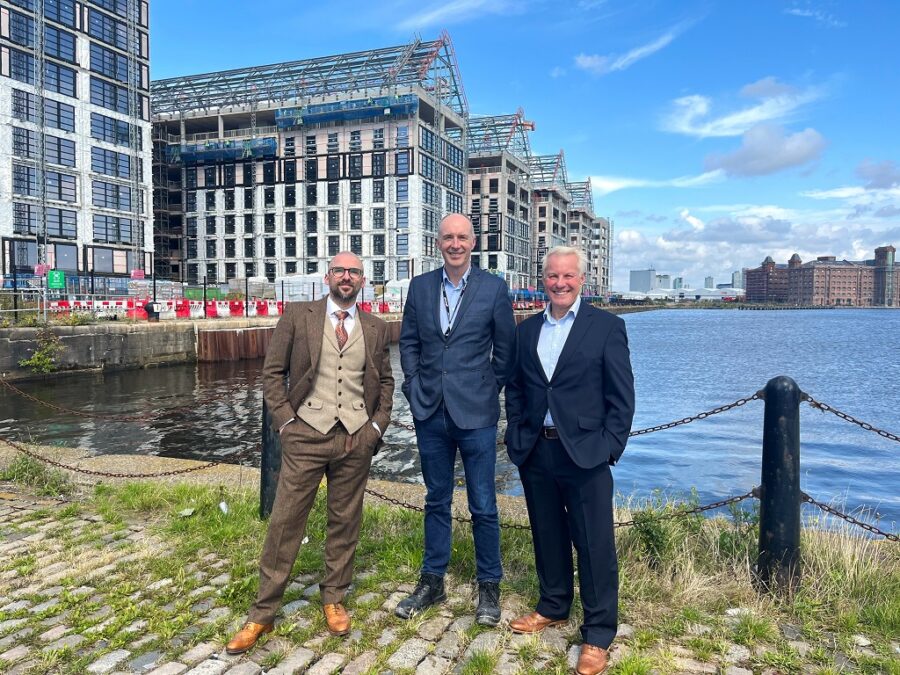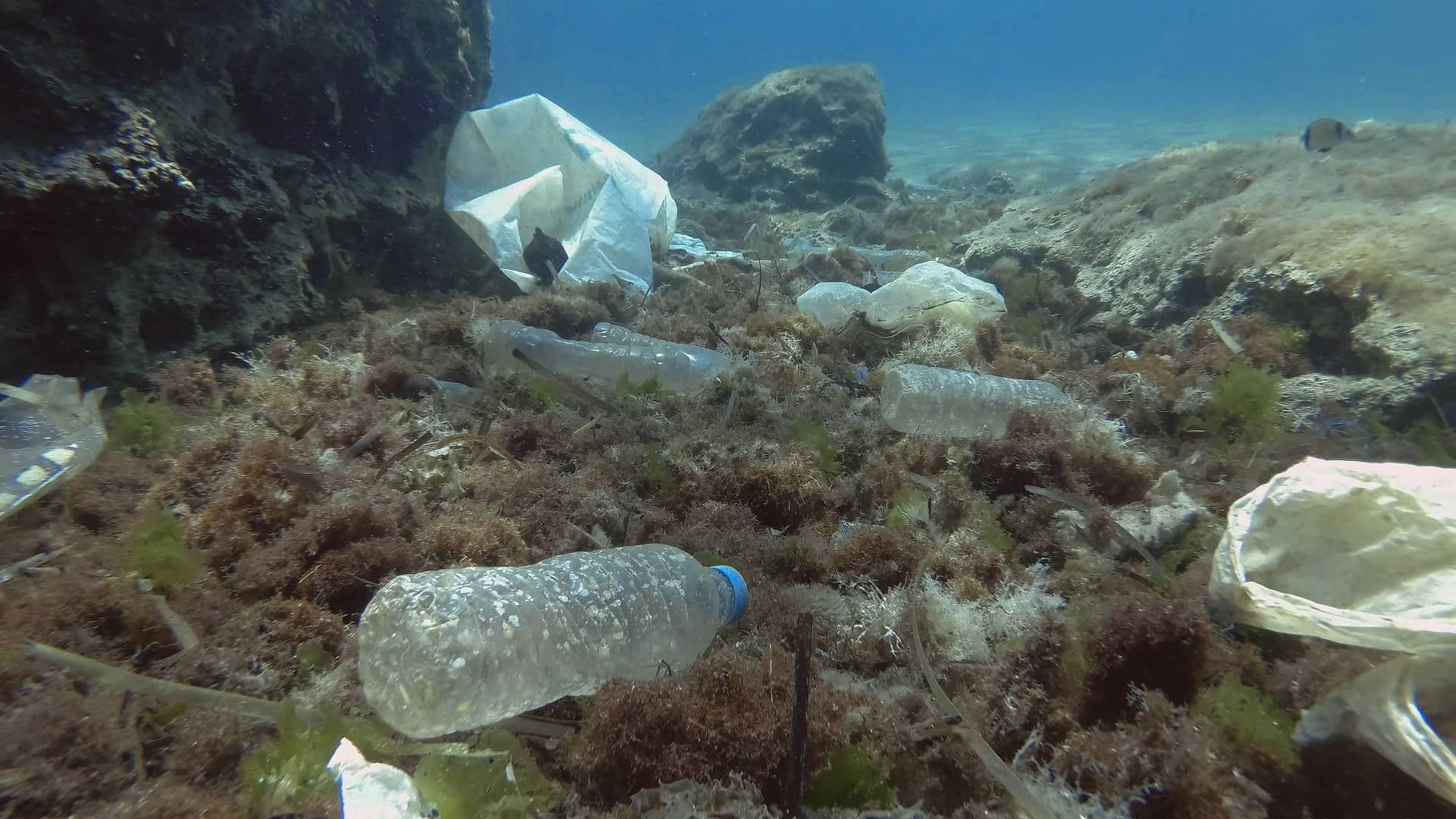Most of this debris originates on land and ends up in the ocean from people and the built environment. It threatens marine life, food safety and human health. Manufacturing plastic materials also leaves a huge carbon footprint and is a significant contributor to the climate emergency.
Furthermore, plastic pollution directly or indirectly impacts at least 12 United Nations SDGs (Sustainable Development Goals) and threaten the implementation of these critical targets – this is a stark reminder that we must reduce our reliance on plastic to preserve our oceans.
After packaging, the construction industry is the largest user of plastics – generating over 50,000 tonnes of plastic waste each year in the UK alone. This presents a significant opportunity to change the mindset of big players in UK construction to reduce their use of plastic.
What can we do?
To affect change, industry leaders need to buy in to a new way of responsible building practices. A huge factor in this is community engagement with key stakeholders in the industry to raise awareness of the current impact that plastic pollution is having on our ecosystem.
Evidence based solutions through research can then be the driving force of an industry shift and lead to more and more organisations adopting plastic-free alternatives in their designs to protect the environment.
When evidence of successful projects can be demonstrated, momentum should grow and responsible construction can move higher up on the industry agenda.
What is Changing Streams CIC?
Changing Streams CIC, in partnership with University of Liverpool was established in 2019 to tackle plastic pollution in the construction industry. They work with forward-thinking companies that want to improve sustainability by reducing plastics and carbon from design and construction.
There is a disconnect between academia and industry that has impeded progress of raising awareness of the plastic problem amongst industry leaders. To bridge this gap, Changing Streams brings together scientists, academics, and industry leaders with significant expertise of the public and private sectors.
Through education, research and consultancy, their experts deliver a wide range of services by first, creating an awareness of the issues then, providing support, evidence, and solutions where they’re needed most so that large organisations are willing to act more responsibly in their designing and construction practices.

Changing Stream’s Gareth Abrahams, Peel Waters' Richard Mawdsley, and Changing Stream’s Neal Maxwell have partnered together to reduce plastic waste at Wirral Waters. Credit: If We Ran the Zoo
Changing Streams Research Centre
The School of Environmental Sciences has opened a Changing Streams Research Centre directed by Dr Gareth Abrahams. Here there are various projects underway to accelerate the reduction of plastic pollution. These are broken into two strands of research and KE activity: upstream research and downstream research.
Upstream research: A Case Study in Wirral Waters
In 2021, Peel Waters became a member of Changing Streams CIC which led to a ground-breaking partnership with Peel Waters and its construction partners with Changing Streams and researchers from the University of Liverpool to identify where sustainable plastic-free alternatives can be used in large scale construction projects.
This partnership was used to establish a ground-breaking research project delivered through the Changing Streams Research Centre and led by Dr Abrahams. This project has been used to identified the amount of plastic used in construction through rigorous audits and to developed new innovations to reduce plastic, and to establish new R&D opportunities to produce the plastic-free materials of the future.
Miller’s Quay, Peel Waters' cornerstone residential scheme at Wirral Waters was a key part of the research project where academics assessed the potential for the construction industry to reduce the volume of plastics being used at the £130m residential development.
This partnership between Peel Waters', Changing Streams CIC and the University of Liverpool is the first dedicated attempt to tackle this issue on a large, landmark scheme like Miller’s Quay.
Downstream research
Through the centre, Professor Jonathan Sharples will take a team to the subtropical South Atlantic to investigate how plankton, a microscopic plant, is responsible for exporting carbon from the sea surface down to the depths of the ocean, effectively removing CO2 from the surface of the water. The carbon is stored in plankton until it dies and sinks to the depths of the ocean where it stays for around 1,000 years.
Worryingly, there is increasing evidence to suggest that tiny particles from plastic pollution reduce how efficiently that CO2 is transported to the ocean bed. If we do find microplastics in an isolated environment such as the subtropical South Atlantic, we need to understand the effects that is having on the environment.
A similar expedition will take place in the North Sea where investigators will measure how offshore floating wind farms affect the growth of plankton.
On both these expeditions, water samples will be collected and analysed for microplastics at University of Liverpool labs to identify where these plastics originated from. If the construction industry is identified as a major contributor to plastic pollution in these locations, evidence of how this pollution is damaging the environment can then be shown to the construction industry.
An online database that identifies alternative construction materials that can be used in place of the normal plastic-based products currently being developed for construction organisations so they can easily access the information for responsible procurement.
Authors;
Dr Gareth Abrahams, Senior Lecturer, Department of Geography and Planning and director of the Changing Streams Research Centre
Professor Jonathan Sharples, Professor of Ocean Sciences, Department of Earth, Ocean and Ecological Sciences
Back to: Research
